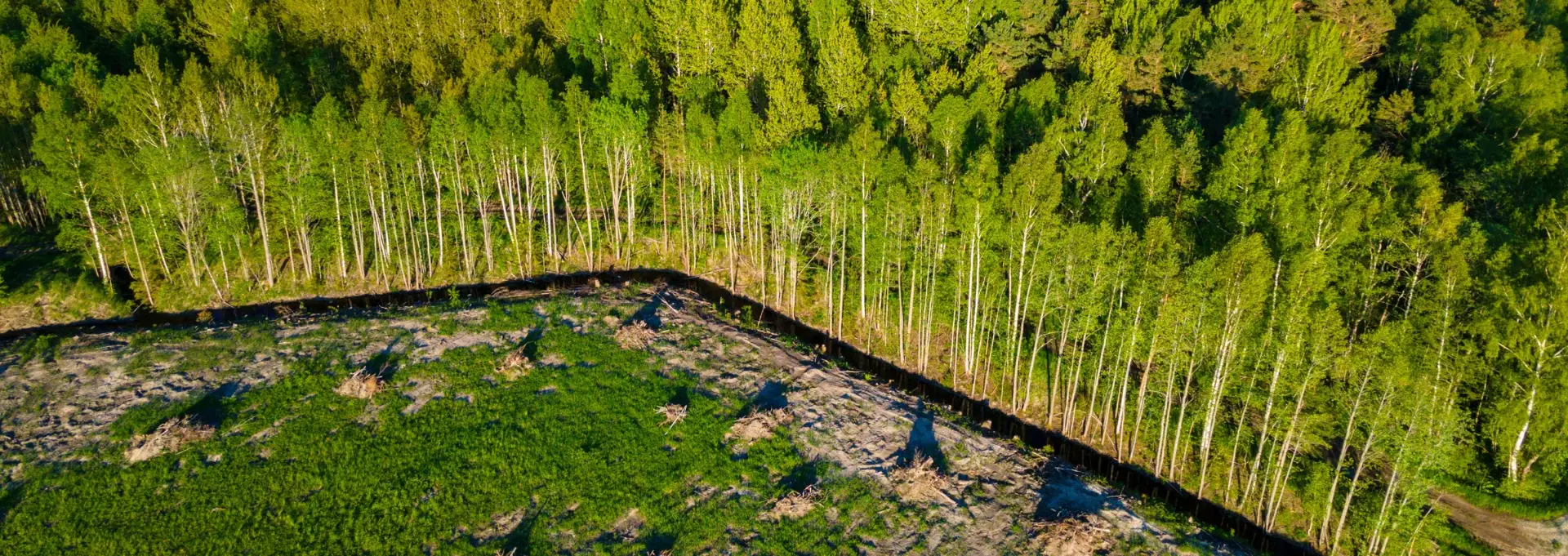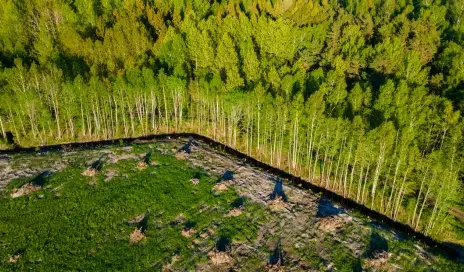At Mindsprint, a beacon of hope emerged: over $19 billion pledged by world leaders to tackle deforestation, a major contributor to climate change (8-10% of global GHG emissions). Visions of revitalized rainforests in Indonesia and the Amazon danced in many minds.
The funding is substantial, the intentions admirable, and the support for ravaged regions long overdue. But a crucial question lingers: Can we truly stop deforestation-driven emissions?
The Devastation is Real
Organizations like Global Forest Watch (https://www.globalforestwatch.org/) paint a stark picture with their exceptional monitoring of deforestation hotspots. But once the COP26 hype fades, what practical solutions will ensure best practices and proactive mitigation on the ground?
Sustainability Certifications: A Game Changer
Enter sustainability certifications: a potent weapon in the fight against deforestation. These standards verify responsible practices in forests, tree plantations, agriculture, and various land-use scenarios. Independent assessments ensure responsible management at the source (forests, farms, plantations) and throughout the entire supply chain (chain of custody).
Tracing the Journey: From Forest to Finished Product
Imagine a log being harvested. It travels to a sawmill, then perhaps to a wholesaler or retailer. But wood products like flooring, furniture, or toys may undergo further processing, adding more steps to the journey. To guarantee deforestation-free products reach consumers, meticulous inventory tracking is crucial. Every stage, from harvest to retail, needs proper labeling to ensure responsible purchasing choices and carbon sequestration for climate change mitigation.
Biofuels and Agri Commodities: A Sustainable Future
As the global economy seeks to transition away from fossil fuels, biomass and other bio-based fuels and products are becoming increasingly important. The ISCC EU standard, a key certification approved under the EU RED framework, focuses on product traceability and deforestation-free supply chains. ISCC's commitment to protecting forests, high-carbon stock lands, and biodiversity ensures that biomass and raw materials for biofuels are produced sustainably, with no deforestation or high-carbon stock loss since 2008.
Deforestation-Free Certifications and Retail Pressure
In the realm of food and agriculture, sustainability certifications have become a powerful tool for combating deforestation. Organizations like Rainforest Alliance and others have implemented strict policies that prohibit deforestation entirely after specific cut-off dates. This means that any agricultural operation seeking certification must demonstrate a commitment to preserving existing forests and avoiding expansion into previously forested areas.
Auditors play a crucial role in verifying compliance with these standards. They meticulously examine agricultural practices to ensure that they do not contribute to deforestation, especially in regions known for high rates of forest loss. Satellite imagery is a valuable asset in this process, as it can reveal historical deforestation patterns and identify areas that may be at risk.
The pressure for sustainable practices is not limited to producers alone. Retailers, particularly in Europe and the United States, are increasingly demanding certified products from their suppliers. This trend is driven by consumer awareness and a growing desire for ethically sourced goods. Some retailers have even gone a step further by using certifications as a means of ensuring that their entire supply chains are free from deforestation risks. Lidl, for example, has made a public commitment to source 100% of its palm oil and soy from deforestation-free sources.
The Urgency of Deforestation Mitigation
The global community has made it abundantly clear that products linked to deforestation are no longer acceptable. This sentiment has permeated international governance and supply chains, leading to increased scrutiny and market pressure. Consumers, particularly in Western markets, are increasingly demanding products that are ethically sourced and environmentally responsible. Retailers, driven by strong ESG policies, are also hesitant to stock items associated with deforestation.
The COP26 climate summit and subsequent international gatherings have underscored the need for robust regulations and oversight to curb deforestation. While significant progress has been made, particularly in Western regions, there remains a pressing need to expand the adoption of certification standards in Eastern and Southern hemispheres. Satellite imagery continues to expose rampant deforestation, illegal logging, and other harmful practices that threaten forest ecosystems.
MINDSPRINT: A Partner in Deforestation Mitigation
MINDSPRINT is at the forefront of addressing deforestation challenges. We work closely with organizations and standards to develop and implement effective mitigation strategies. Our services include consulting and helping companies worldwide achieve their sustainability goals.
By establishing strong ESG protocols, procurement guidelines, and certifications, corporations can demonstrate their commitment to deforestation-free practices. Certifications provide a reliable framework for translating the ideals of COP26 into tangible, sustainable solutions.
Let MINDSPRINT Guide Your Sustainability Journey
At MINDSPRINT, we can help you identify the most appropriate certifications and solutions to meet your specific needs. Whether you're just starting your sustainability journey or looking to enhance your existing efforts, we're here to provide expert guidance and support. Contact us today to learn more about how we can help you contribute to a deforestation-free future.

